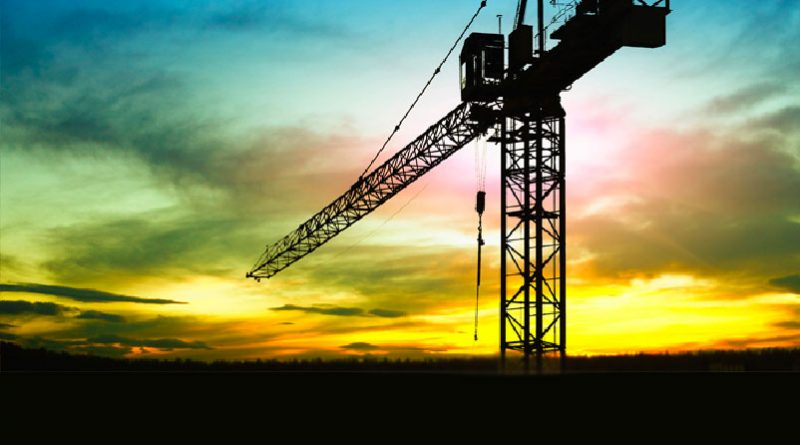New order growth up at end of 2016
The Irish construction sector ended 2016 on a positive note, with activity continuing to rise sharply amid a faster expansion of new orders. That’s according to the Ulster Bank Construction Purchasing Managers’ Index® (PMI®) – a seasonally adjusted index designed to track changes in total construction activity – posted 58.9 in December, down slightly from the reading of 59.8 in November but still signalling a substantial monthly increase in activity.
The Rate of job creation and growth of purchasing activity remained substantial and firms were strongly optimistic that activity would increase further in 2017. That said, the rate of input cost inflation accelerated sharply to the strongest since March 2007. Construction activity has now risen in each of the past 40 months, with panellists mainly linking the latest expansion to higher new work volumes.
Commenting on the survey, Simon Barry, Chief Economist Republic of Ireland at Ulster Bank, noted that: “The December results of the Ulster Bank Construction PMI survey indicate that Irish construction firms continued to experience sharp increases in activity last month. The headline PMI was recorded at 58.9 in December, down slightly from November’s 59.8 but still signalling robust expansion of activity. Both the residential and commercial sub-sectors remain particular sources of strength for survey respondents, with activity in both categories continuing to rise at rapid rates, albeit slightly less rapid than was the case in November. Civil engineering remains an area of weakness, however, with activity here decreasing for the second month running.
“Overall, the December survey results round off another strong year of recovery for Irish construction firms, with the PMI consistently pointing to ongoing healthy expansion throughout 2016. Moreover, momentum behind the sector’s recovery continues to look encouragingly solid, with a marked pick up in New Orders in December indicating that activity trends look set to remain positive in early 2017. Furthermore, firms themselves remain strongly optimistic about the coming year with almost two thirds of respondents expecting further growth in activity in the coming 12 months. While a notable late-year pick up in input prices points to increased challenges on the costs front, positive sentiment about the year ahead is being underpinned by signs of improving conditions in both the construction sector itself and the wider Irish economy.”
[rev_slider Surety]
Reduction in civil engineering activity
Both the housing and commercial construction categories continued to record sharp increases in activity, with the rate of growth marginally quicker in the latter. In contrast, civil engineering activity decreased for the second month running and at the fastest pace since April 2014.
New order growth picks up
New orders have risen continuously throughout the past three-and-a-half years, with December seeing a strong monthly expansion that was faster than recorded in November.
Further sharp rises in employment and purchasing
Rising workloads led construction firms to increase their staffing levels again at the end of the year. Moreover, the rate of job creation remained substantial and was broadly in line with the nine-month high seen in November.
Likewise, firms increased their purchasing activity sharply, extending the current sequence of growth to 34 months.

The rate of input cost inflation accelerated sharply during December and was the fastest since March 2007. Panellists reported higher prices for raw materials and manufactured goods.
A further deterioration in the performance of suppliers to the construction sector was recorded, with the latest lengthening of lead times the greatest in ten months.
Business sentiment improved at the end of the year and was strongly positive. According to respondents, improvements in the construction sector and wider Irish economy are set to help lead to growth of activity over the coming year.
Simon Barry, Chief Economist, Republic of Ireland, Ulster Bank.
Follow Ulster Bank Economics on Twitter: https://twitter.com/UB_Economics

